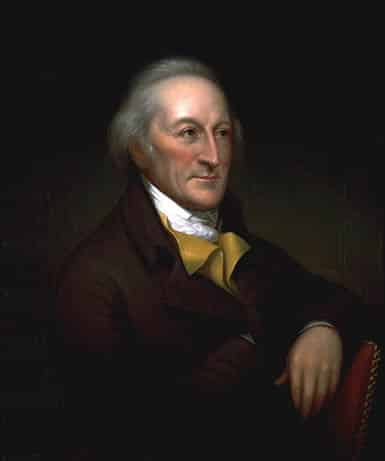George Clymer was an American politician and Founding Father of the United States. He was one of the first Patriots to advocate complete independence from Britain.

As a Pennsylvania representative, Clymer was, along with five others, a signatory of both the Declaration of Independence and the U.S. Constitution. He attended the Continental Congress and served in political office until the end of his life.
George Clymer (March 16, 1739 – January 23, 1813) was an American politician and Founding Father of the United States.
He was one of the first Patriots to advocate complete independence from Britain. As a Pennsylvania representative, Clymer was, along with five others, a signatory of both the Declaration of Independence and the U.S. Constitution. He attended the Continental Congress and served in political office until the end of his life.
- George Clymer was born in Philadelphia, Pennsylvania, in March 1739. Clymer’s uncle raised him after his parents passed away and prepared him to be a merchant.
- Here, Clymer would become successful in his trade and accumulate a considerable fortune. Although he would become active in politics, he would continue his business ventures and increase his wealth.
- It would be the Tea and Stamp Act that would influence Clymer to join the patriot cause. He became a member of the Philadelphia Committee of Safety in 1773 and was elected as a delegate to the Second Continental Congress, where he served with Benjamin Franklin, Benjamin Rush, Robert Morris, and others.
- Clymer resigned from Congress in 1777 and was elected to the Pennsylvania legislature in 1780. In 1783, he was sent on a tour of the southern states in an attempt to collect subscriptions to the central government.
- He would go on to represent Pennsylvania in the Constitutional Convention.
- Although Clymer is not a familiar name in the history books, he was highly influential throughout the early events of the nation. His wealth allowed him to be generous to various causes and gave him considerable pull.
- He served as the first president of the Philadelphia Bank, was the head of the excise department, helped negotiate a treaty with the Creek confederacy in Georgia, and is considered a benefactor for the Indiana Borough.
- Clymer died January 24, 1813, and was buried in Trenton, New Jersey.
